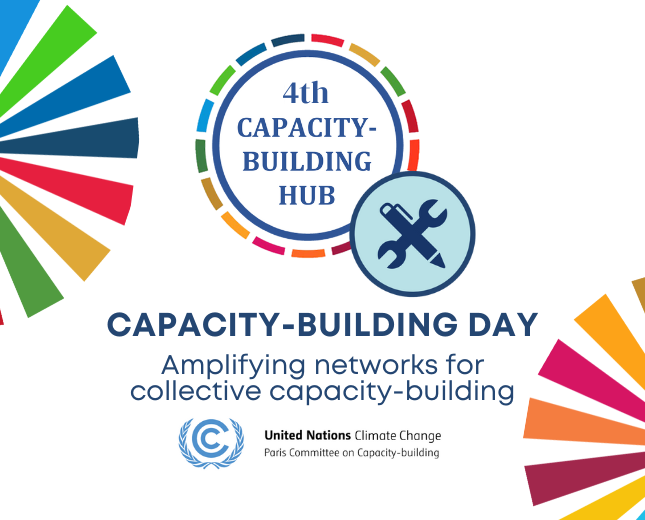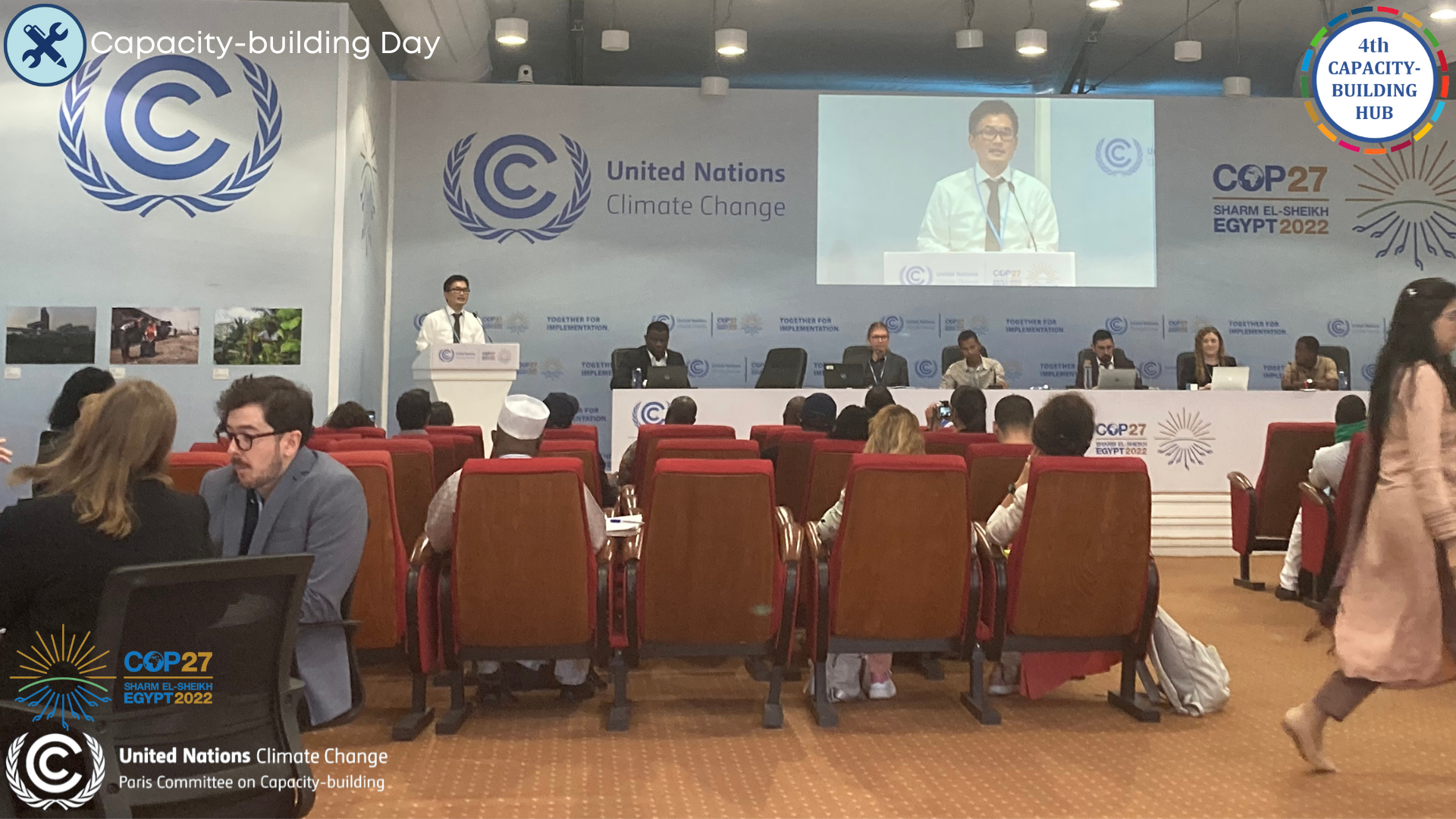Event Recording
Organizers
Background
Leading to COP27, Fundación Avina’s IDRC funded programme, Impulsouth, collaborated with the UN Climate Change Regional Collaboration Centres, and the UN University - Pan African Cooperation and Educational Technologies (PACET), to organize two events at the Latin America and Caribbean, and Africa Regional Climate Weeks to provide a platform for sharing knowledge and best practices to strengthen the focus and work on the impact of capacity building efforts to enhance youth leadership in climate action.
The event at the Africa Climate Week 2022, in Libreville, Gabon, under the theme “Capacity Building for Youth Climate Action and Entrepreneurial Leadership in Africa” highlighted the:
- Need to rethink capacity building to appropriately balance investment in youth participation in policy discussions versus their engagement in the implementation of on-ground climate action,
- Increased demand for advance modules on policy aspects as well as the need to start moving to implementation focused capacity building approaches, and relatedly,
- Emphasis on using practical and localized approaches, going beyond informational and procedural modules to analyze national climate change strategies to formulate aligned projects that can easily gain government endorsement or support.
Objectives
The session at COP27, under the theme “moving from learning to influence” took further stock of emerging capacity building initiatives to enhance participation in policy dialogue and implementation, and assessed the approaches used to ensure their effectiveness and sustainability of these efforts.
A discussion was held on how the stakeholders measure or intend to measure the impact of capacity building beyond project level, and the recipients’ perception of capacity building being provided. The session also demonstrated how multi-stakeholders could come together to build capacity and support youth and women innovators and entrepreneurs in implementing climate actions/solutions in Africa.
Structure
| Time |
Segment and Speakers |
| 10 min |
Welcome remarks and statement(s) from organizing institutions
- Jyri Jantti, Climate Change Specialist, RCC Kampala [Moderator]
- Bhim Adhikari, Senior Program Specialist of Inclusive Sustainable Economies, SIE Division, IDRC
|
| 10 min |
Setting the scene: Capacity building in the UNFCCC process (approaches and principles)
- Ms. Pemy Nosibusiso Gasela, Director: UNFCCC International Climate Change Relations & Negotiations, Department of Environmental Affairs, South Africa
|
| 35 min |
Moderated panel and Q&A: Effective youth empowerment, sustainability of capacity building & tracking impact
The panel will bring perspectives from the youth constituency and government ministries as key recipient’s capacity building, as well as, the experiences of institutions delivering capacity building. Panelists will also discuss on how the stakeholders measure or intend to measure the impact of capacity building beyond project level.
Guiding questions
- Have you taken part in capacity building processes around climate change and how have you found them useful? What are some of the best practices and obstacles that you have identified?
- How should the effectiveness of capacity building initiatives be assessed?
- How can capacity building and network generation foster entrepreneurship to effectively deliver ambitious climate action?
Panelists
- Jonathan Mickaël Andreas, Ministry of Environment and Sustainable Development, Madagascar
- Pilar Bueno, Researcher at Universidad Nacional de Rosario
- Andres Mogro - Fundacion Avina, Impulsouth Project
- Ezekiel Nyanfor, Liberia, National Coordinator, AYICC, YOUNGO Member
|
| 5 min |
Closing
- Dr. Ambe Emmanuel Cheo, Pan African Cooperation and Educational Technologies Program at UNU-ViE.
- Mr. Makoto Kato, Senior Researcher, Overseas Environmental Cooperation Center, Japan [co-facilitator, Capacity Building Negotiation
|
Key Outcomes
- A major portion of youth are excluded from Capacity Building due to lack of technical facilities such as not having internet connection.
- Youth people should be given opportunity to share their thoughts with different stakeholders such as gov officials, NGOs, private sector, corporation agency etc. With the recommendations and support from the stakeholders, they can introduce some locally implemented solutions.
- The mode of the Capacity Building should be in-person so that they can directly interact with the facilitators as well as with other participants.


